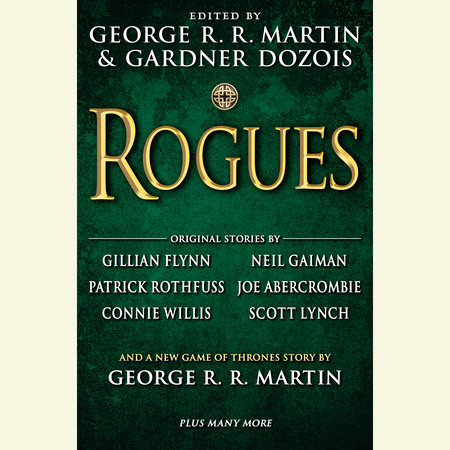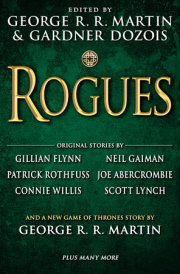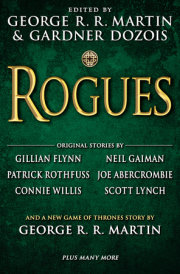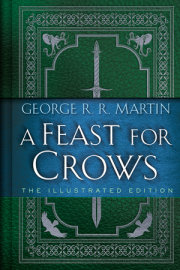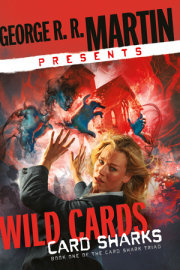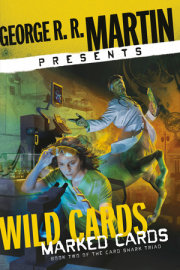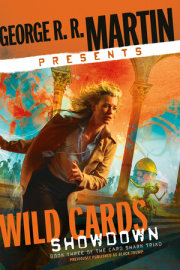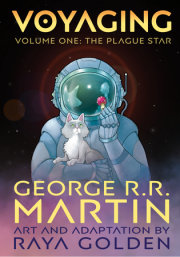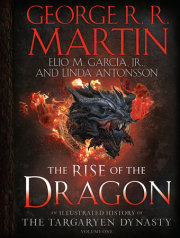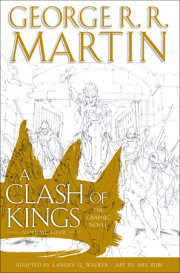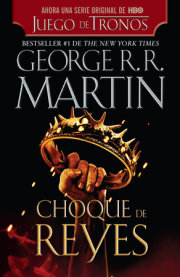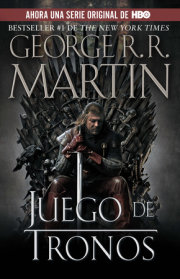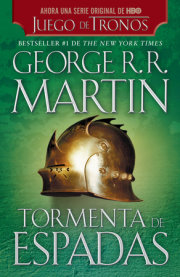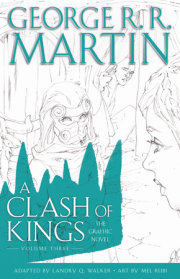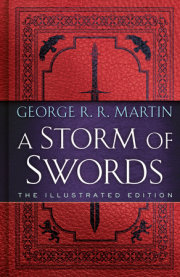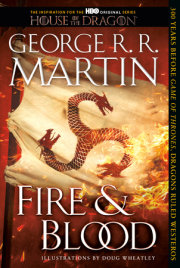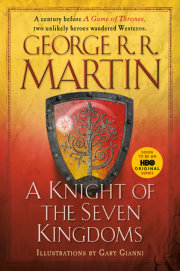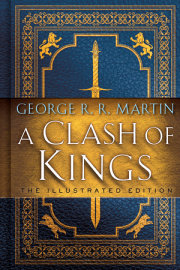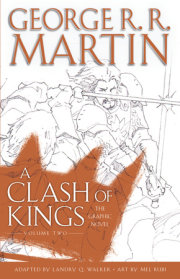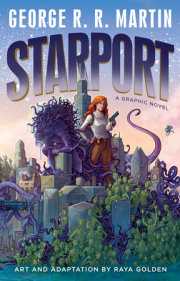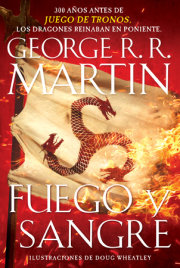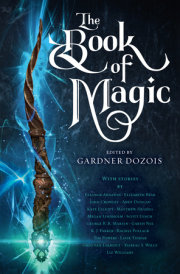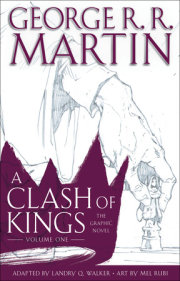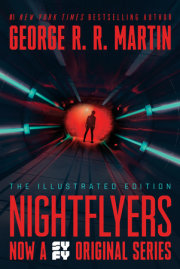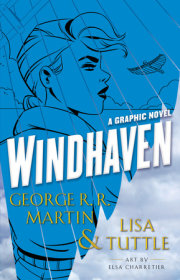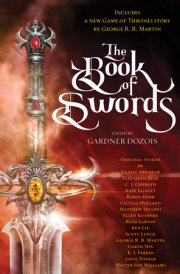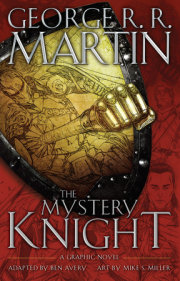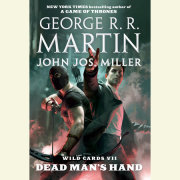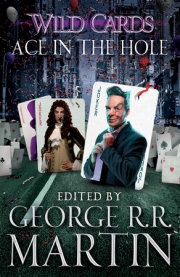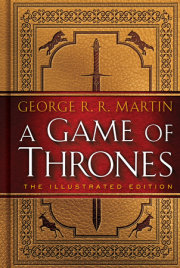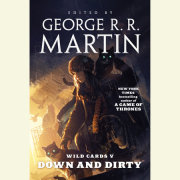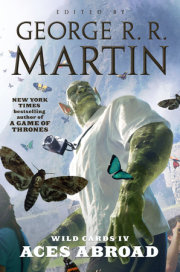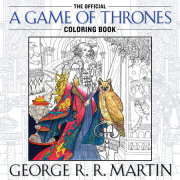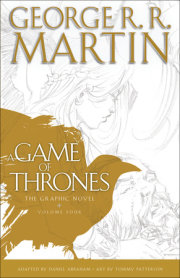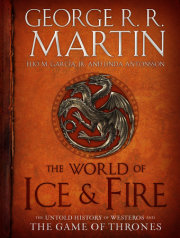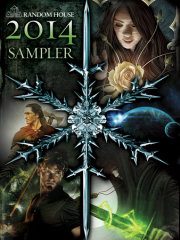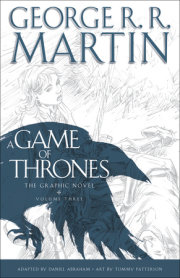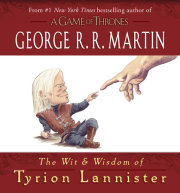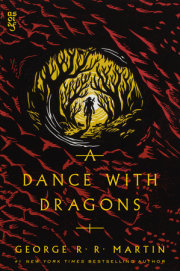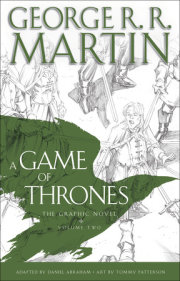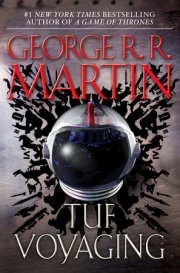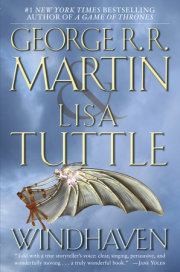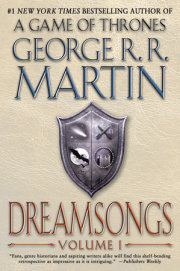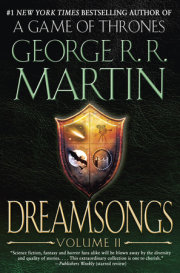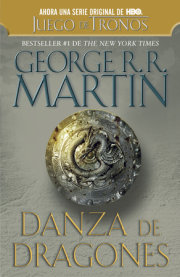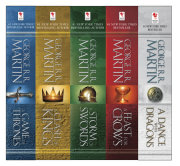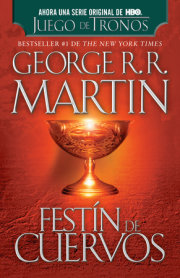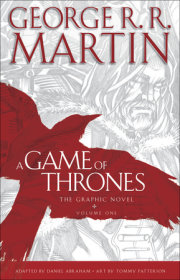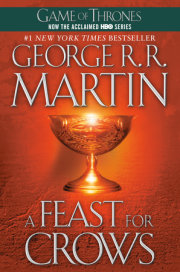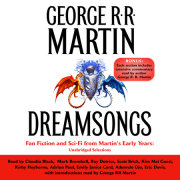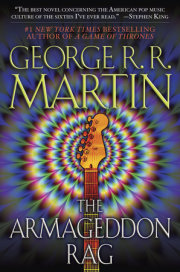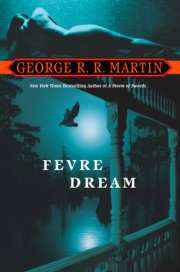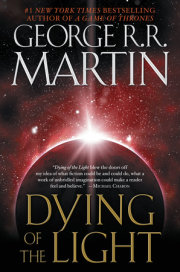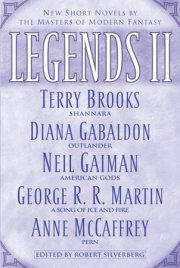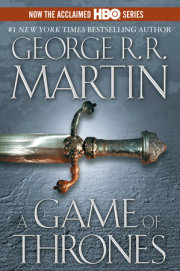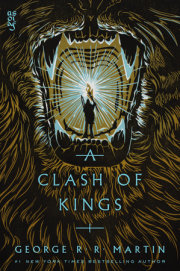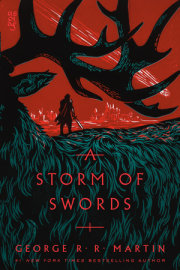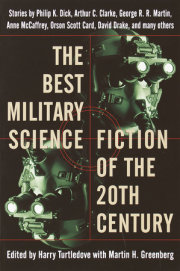Chapter 1Joe Abercrombie
Joe Abercrombie is one of the fastest-rising stars in fantasy today, acclaimed by readers and critics alike for his tough, spare, no-nonsense approach to the genre. He’s probably best known for his First Law trilogy, the first novel of which, The Blade Itself, was published in 2006; it was followed in subsequent years by Before They Are Hanged and Last Argument of Kings. He’s also written the stand-alone fantasy novels Best Served Cold and The Heroes. His most recent novel is Red Country. In addition to writing, Abercrombie is also a freelance film editor, and lives and works in London.
In the fast-paced thriller that follows, he takes us deep into the dirty, rank, melodious, and mazelike streets of Sipani, one of the world’s most dangerous cities, for a deadly game of Button, Button, Who’s Got the Button?
Tough Times All Over
Joe Abercrombie
Damn, but she hated Sipani.
The bloody blinding fogs and the bloody slapping water and the bloody universal sickening stink of rot. The bloody parties and masques and revels. Fun, everyone having bloody fun, or at least pretending to. The bloody people were worst of all. Rogues every man, woman, and child. Liars and fools, the lot of them.
Carcolf hated Sipani. Yet here she was again. Who, then, she was forced to wonder, was the fool?
Braying laughter echoed from the mist ahead and she slipped into the shadows of a doorway, one hand tickling the grip of her sword. A good courier trusts no one, and Carcolf was the very best, but in Sipani, she trusted . . . less than no one.
Another gang of pleasure-seekers blundered from the murk, a man with a mask like a moon pointing at a woman who was so drunk she kept falling over on her high shoes. All of them laughing, one of them flapping his lace cuffs as though there never was a thing so funny as drinking so much you couldn’t stand up. Carcolf rolled her eyes skyward and consoled herself with the thought that behind the masks they were hating it as much as she always did when she tried to have fun.
In the solitude of her doorway, Carcolf winced. Damn, but she needed a holiday. She was becoming a sour ass. Or, indeed, had become one and was getting worse. One of those people who held the entire world in contempt. Was she turning into her bloody father?
“Anything but that,” she muttered.
The moment the revelers tottered off into the night, she ducked from her doorway and pressed on, neither too fast nor too slow, soft bootheels silent on the dewy cobbles, her unexceptional hood drawn down to an inconspicuous degree, the very image of a person with just the average amount to hide. Which, in Sipani, was quite a bit.
Over to the west somewhere, her armored carriage would be speeding down the wide lanes, wheels striking sparks as they clattered over the bridges, stunned bystanders leaping aside, driver’s whip lashing at the foaming flanks of the horses, the dozen hired guards thundering after, streetlamps gleaming upon their dewy armor. Unless the Quarryman’s people had already made their move, of course: the flutter of arrows, the scream of beasts and men, the crash of the wagon leaving the road, the clash of steel, and finally the great padlock blown from the strongbox with blasting powder, the choking smoke wafted aside by eager hands, and the lid flung back to reveal . . . nothing.
Carcolf allowed herself the smallest smile and patted the lump against her ribs. The item, stitched up safe in the lining of her coat.
She gathered herself, took a couple of steps, and sprang from the canal side, clearing three strides of oily water to the deck of a decaying barge, timbers creaking under her as she rolled and came smoothly up. To go around by the Fintine bridge was quite the detour, not to mention a well-traveled and well-watched way, but this boat was always tied here in the shadows, offering a shortcut. She had made sure of it. Carcolf left as little to chance as possible. In her experience, chance could be a real bastard.
A wizened face peered out from the gloom of the cabin, steam issuing from a battered kettle. “Who the hell are you?”
“Nobody.” Carcolf gave a cheery salute. “Just passing through!” and she hopped from the rocking wood to the stones on the far side of the canal and was away into the mold-smelling mist. Just passing through. Straight to the docks to catch the tide and off on her merry way. Or her sour-assed one, at least. Wherever Carcolf went, she was nobody. Everywhere, always passing through.
Over to the east, that idiot Pombrine would be riding hard in the company of four paid retainers. He hardly looked much like her, what with the moustache and all, but swaddled in that ever-so-conspicuous embroidered cloak of hers, he did well enough for a double. He was a penniless pimp who smugly believed himself to be impersonating her so she could visit a lover, a lady of means who did not want their tryst made public. Carcolf sighed. If only. She consoled herself with the thought of Pombrine’s shock when those bastards Deep and Shallow shot him from his saddle, expressed considerable surprise at the moustache, then rooted through his clothes with increasing frustration, and finally, no doubt, gutted his corpse only to find . . . nothing.
Carcolf patted that lump once again and pressed on with a spring in her step. Here went she, down the middle course, alone and on foot, along a carefully prepared route of back streets, of narrow ways, of unregarded shortcuts and forgotten stairs, through crumbling palaces and rotting tenements, gates left open by surreptitious arrangement and, later on, a short stretch of sewer that would bring her out right by the docks with an hour or two to spare.
After this job, she really had to take a holiday. She tongued at the inside of her lip, where a small but unreasonably painful ulcer had lately developed. All she did was work. A trip to Adua, maybe? Visit her brother, see her nieces? How old would they be now? Ugh. No. She remembered what a judgmental bitch her sister-in-law was. One of those people who met everything with a sneer. She reminded Carcolf of her father. Probably why her brother had married the bloody woman . . .
Music was drifting from somewhere as she ducked beneath a flaking archway. A violinist, either tuning up or of execrable quality. Neither would have surprised her. Papers flapped and rustled upon a wall sprouting with moss, ill-printed bills exhorting the faithful citizenry to rise up against the tyranny of the Snake of Talins. Carcolf snorted. Most of Sipani’s citizens were more interested in falling over than rising up, and the rest were anything but faithful.
She twisted about to tug at the seat of her trousers, but it was hopeless. How much do you have to pay for a new suit of clothes before you avoid a chafing seam just in the worst place? She hopped along a narrow way beside a stagnant section of canal, long out of use, gloopy with algae and bobbing rubbish, plucking the offending fabric this way and that to no effect. Damn this fashion for tight trousers! Perhaps it was some kind of cosmic punishment for her paying the tailor with forged coins. But then Carcolf was considerably more moved by the concept of local profit than that of cosmic punishment, and therefore strove to avoid paying for anything wherever possible. It was practically a principle with her, and her father always said that a person should stick to their principles—
Bloody hell, she really was turning into her father.
“Ha!”
A ragged figure sprang from an archway, the faintest glimmer of steel showing. With an instinctive whimper, Carcolf stumbled back, fumbling her coat aside and drawing her own blade, sure that death had found her at last. The Quarryman one step ahead? Or was it Deep and Shallow, or Kurrikan’s hirelings . . . but no one else showed themselves. Only this one man, swathed in a stained cloak, unkempt hair stuck to pale skin by the damp, a mildewed scarf masking the bottom part of his face, bloodshot eyes round and scared above.
“Stand and deliver!” he boomed, somewhat muffled by the scarf.
Carcolf raised her brows. “Who even says that?”
A slight pause, while the rotten waters slapped the stones beside them. “You’re a woman?” There was an almost apologetic turn to the would-be robber’s voice.
“If I am, will you not rob me?”
“Well . . . er . . .” The thief seemed to deflate somewhat, then drew himself up again. “Stand and deliver anyway!”
“Why?” asked Carcolf.
The point of the robber’s sword drifted uncertainly. “Because I have a considerable debt to . . . that’s none of your business!”
“No, I mean, why not just stab me and strip my corpse of valuables, rather than giving me the warning?”
Another pause. “I suppose . . . I hope to avoid violence? But I warn you I am entirely prepared for it!”
He was a bloody civilian. A mugger who had blundered upon her. A random encounter. Talk about chance being a bastard! For him, at least. “You, sir,” she said, “are a shitty thief.”
“I, madam, am a gentleman.”
Copyright © 2014 by George R.R. Martin. All rights reserved. No part of this excerpt may be reproduced or reprinted without permission in writing from the publisher.

